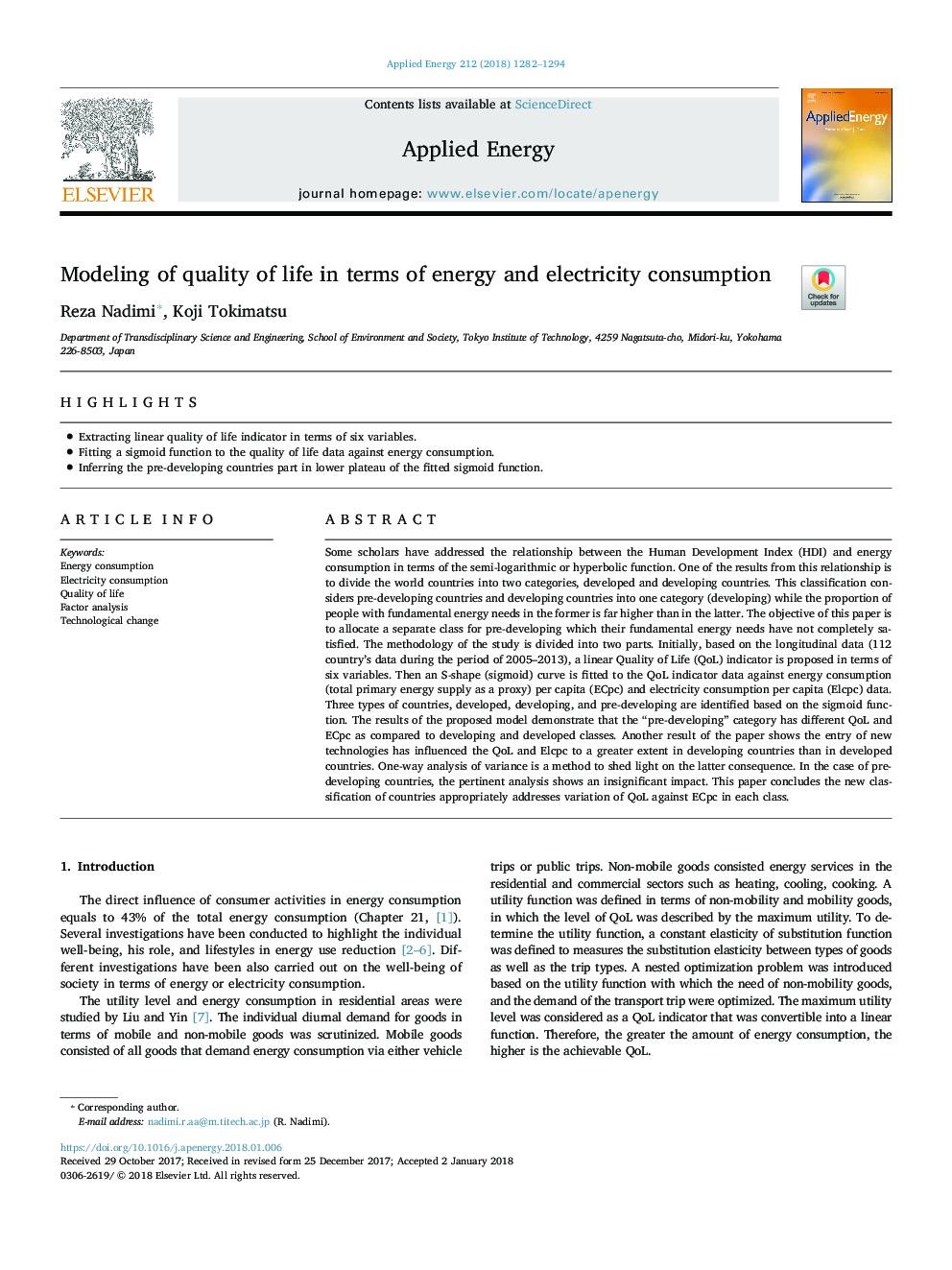| Article ID | Journal | Published Year | Pages | File Type |
|---|---|---|---|---|
| 6681099 | Applied Energy | 2018 | 13 Pages |
Abstract
Some scholars have addressed the relationship between the Human Development Index (HDI) and energy consumption in terms of the semi-logarithmic or hyperbolic function. One of the results from this relationship is to divide the world countries into two categories, developed and developing countries. This classification considers pre-developing countries and developing countries into one category (developing) while the proportion of people with fundamental energy needs in the former is far higher than in the latter. The objective of this paper is to allocate a separate class for pre-developing which their fundamental energy needs have not completely satisfied. The methodology of the study is divided into two parts. Initially, based on the longitudinal data (112 country's data during the period of 2005-2013), a linear Quality of Life (QoL) indicator is proposed in terms of six variables. Then an S-shape (sigmoid) curve is fitted to the QoL indicator data against energy consumption (total primary energy supply as a proxy) per capita (ECpc) and electricity consumption per capita (Elcpc) data. Three types of countries, developed, developing, and pre-developing are identified based on the sigmoid function. The results of the proposed model demonstrate that the “pre-developing” category has different QoL and ECpc as compared to developing and developed classes. Another result of the paper shows the entry of new technologies has influenced the QoL and Elcpc to a greater extent in developing countries than in developed countries. One-way analysis of variance is a method to shed light on the latter consequence. In the case of pre-developing countries, the pertinent analysis shows an insignificant impact. This paper concludes the new classification of countries appropriately addresses variation of QoL against ECpc in each class.
Keywords
Related Topics
Physical Sciences and Engineering
Energy
Energy Engineering and Power Technology
Authors
Reza Nadimi, Koji Tokimatsu,
